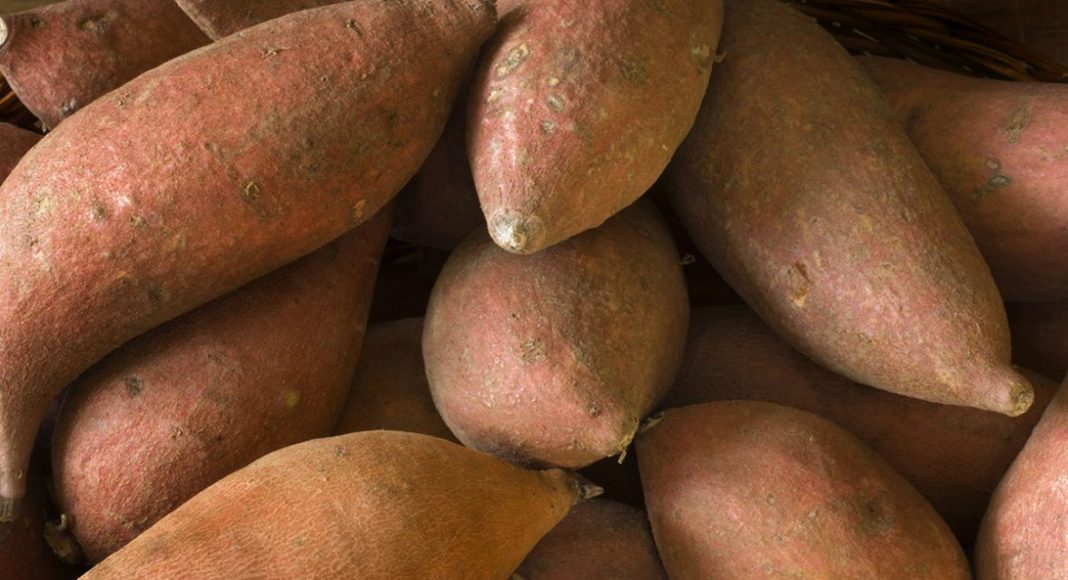Britain’s home cooks have been baking them into wedges, “spiralizing” them into colourful curls and noodles and mashing them as an alternative to the traditional spud. The newfound enthusiasm for sweet potatoes in the UK has triggered record supermarket sales but a new variety means they are now not so exotic.
British-grown sweet potatoes are going on sale in supermarkets for the first time this month, the first successful results of a crop innovation in the south of England which has taken three years to develop.
The move has been hailed as a breakthrough for British farming, as the sweet potato typically relies on warm and dry growing conditions and has until now only been sourced overseas, typically from southern US states such as North and South Carolina, Egypt, Senegal and Israel.
Nearly three tonnes of sweet potatoes have been lifted from polythene-covered raised outdoor beds at Hill Farm, Farningham in north Kent, marking the successful end of a three-year experiment by Joe Cottingham, group director of the Watts Farms group.
“We have been successful in growing sweet potatoes outdoors in Kent because of careful variety trial work and selection for frost resistance, which the crop is susceptible to,” Cottingham explained.
“They are grown in light soils through a mulch which allows us to get warmer soil temperatures which produce good-sized potatoes. We give the potatoes all the water they need through drippers underneath the mulch which takes them from small plants to much larger plants bearing fruit in five months.”
At sites in Bedfordshire, Essex, Kent and Northamptonshire, the company grows and packs over 60 different types of produce including vegetables, fruit and salads. Now one of the UK’s largest growers of fresh herbs and chillies, thanks to the explosion in popularity of Thai and Mexican food, its specialists have recently also successfully grown fresh kaffir lime leaves and tiny Peruvian pickling peppers called piquinos.
“Sweet potatoes have been a challenge but we have finally got there after experimenting with a number of different varieties,” Cottingham said. A white Caribbean sweet potato was rejected as “too sweet” for British tastebuds, but the more familiar looking red-skinned, orange-fleshed variety was successfully grown from plants put in the soil in the spring.
The farms are major suppliers of fresh produce to supermarkets as well as to hotels and caterers through their food service business.
In March sweet potatoes appeared for the first time in the shopping basket used by the Office for National Statistics (ONS) – as a snapshot of spending – to measure UK inflation. They are lower in carbohydrates and calories than regular potatoes, as well as having higher fibre content and being high in vitamin A.
Gemma Hodgson, a vegetable buyer for the Waitrose supermarket chain, said: “It wasn’t too long into the past that sweet potatoes were considered exotic. Now they are an everyday staple. The main appeal for this vegetable is its versatility. They are great for making quick-cook chips or a less stodgy mash.”
To learn more, visit The Guardian.











